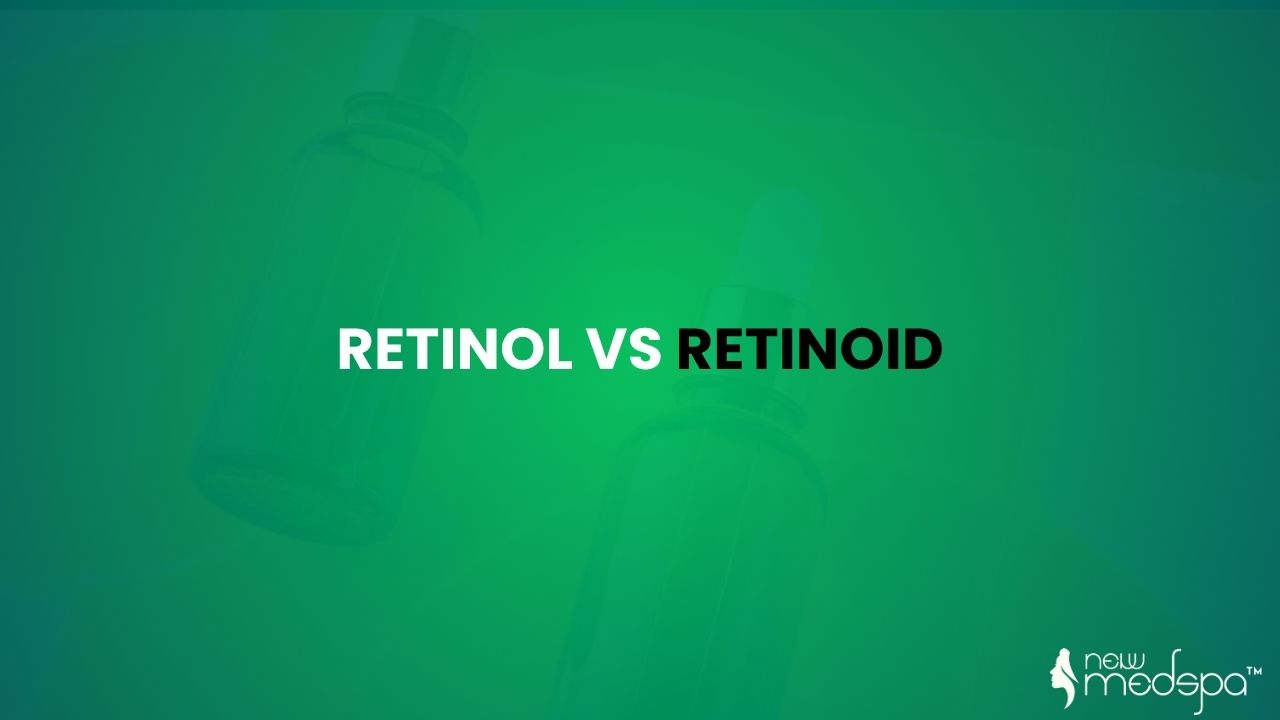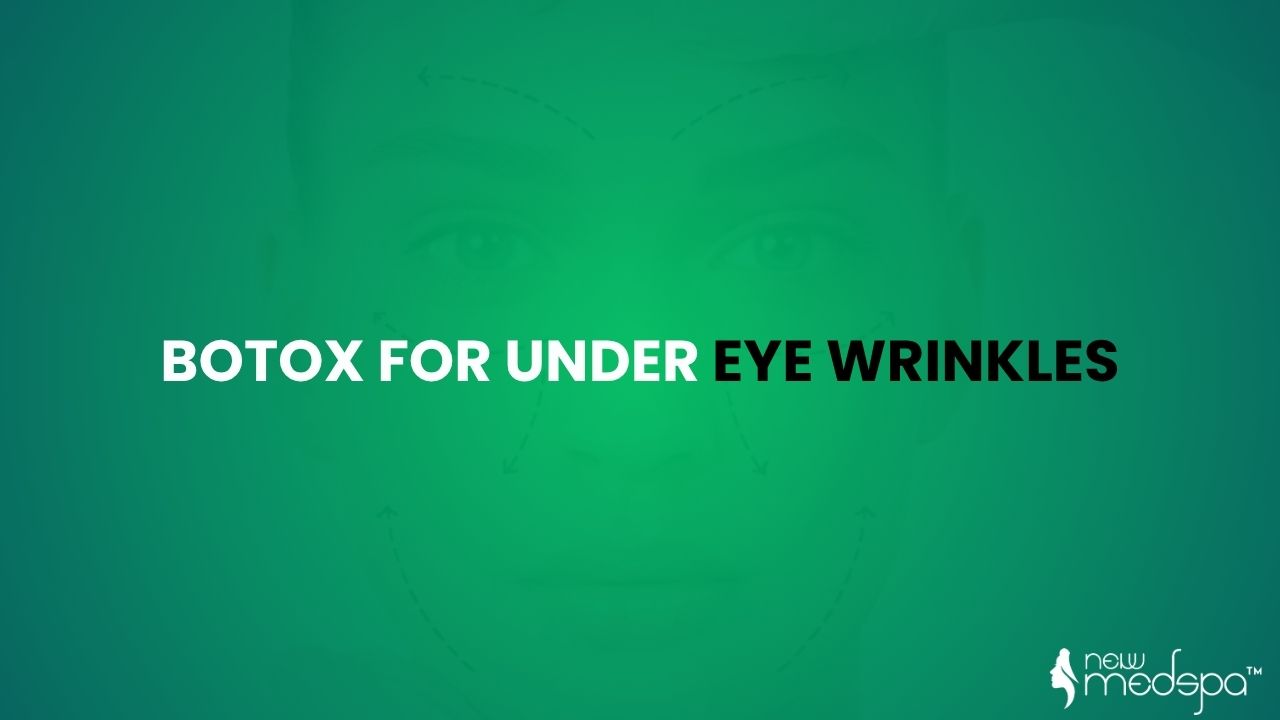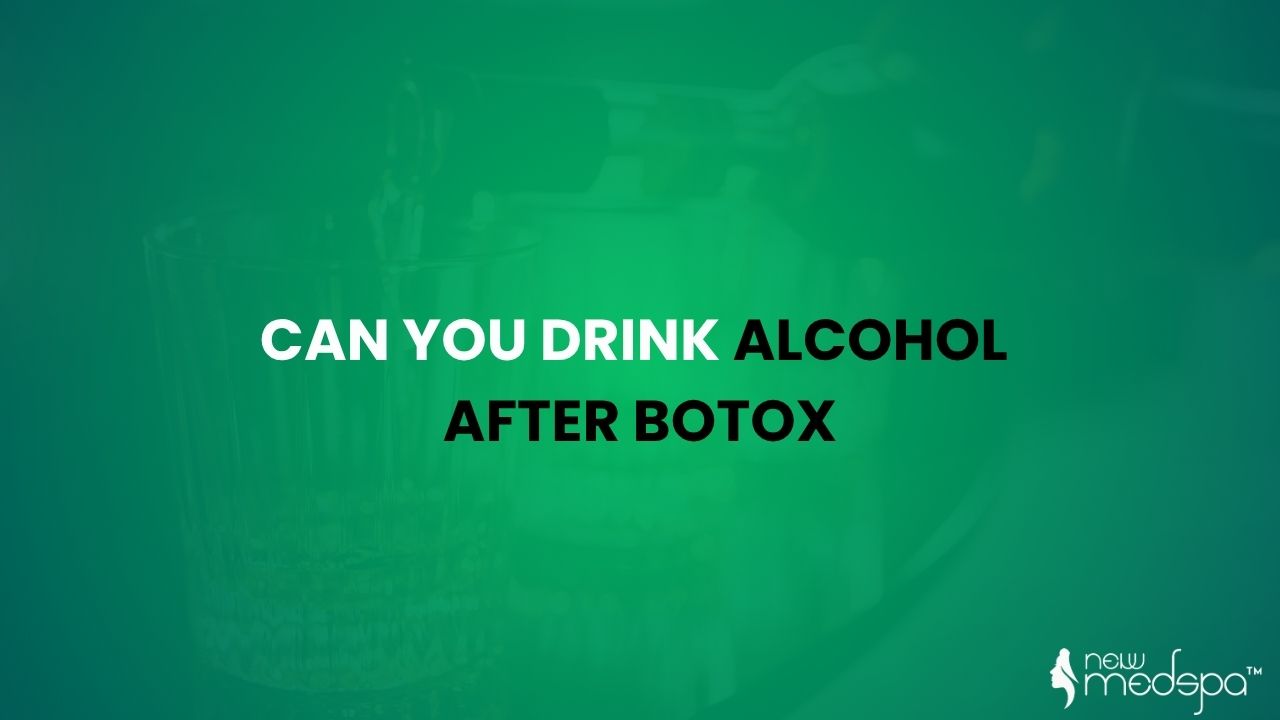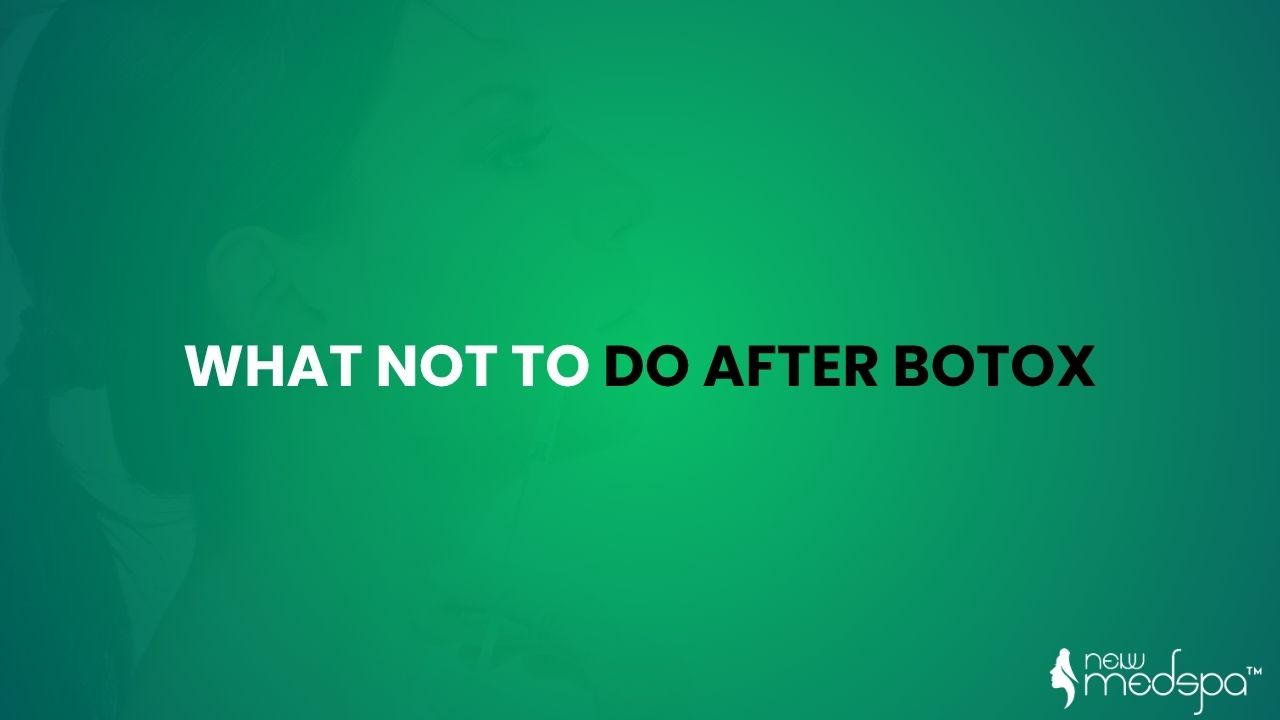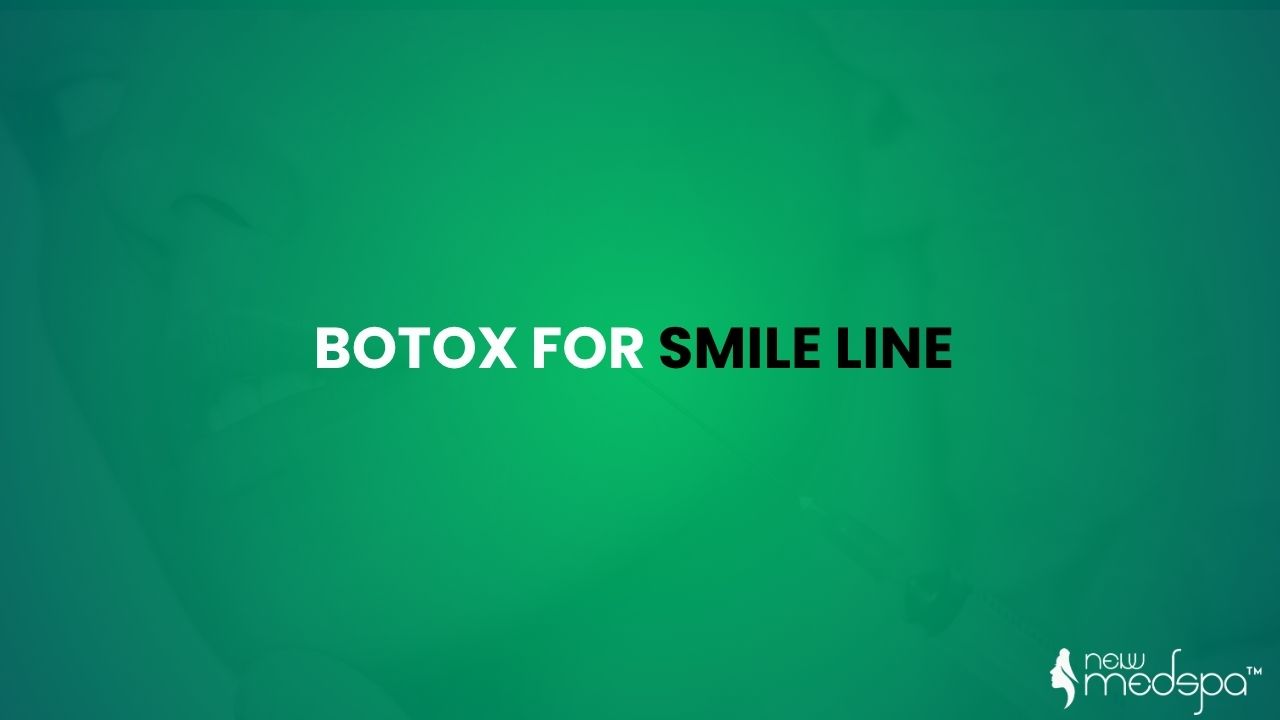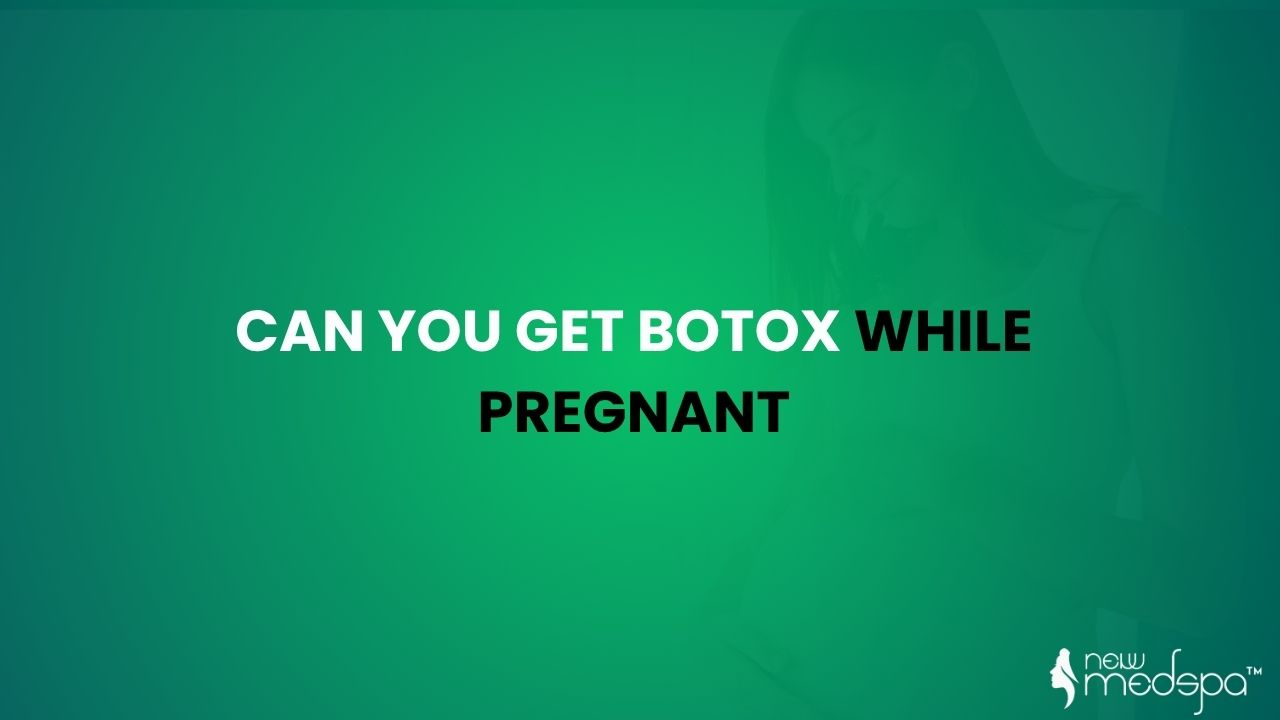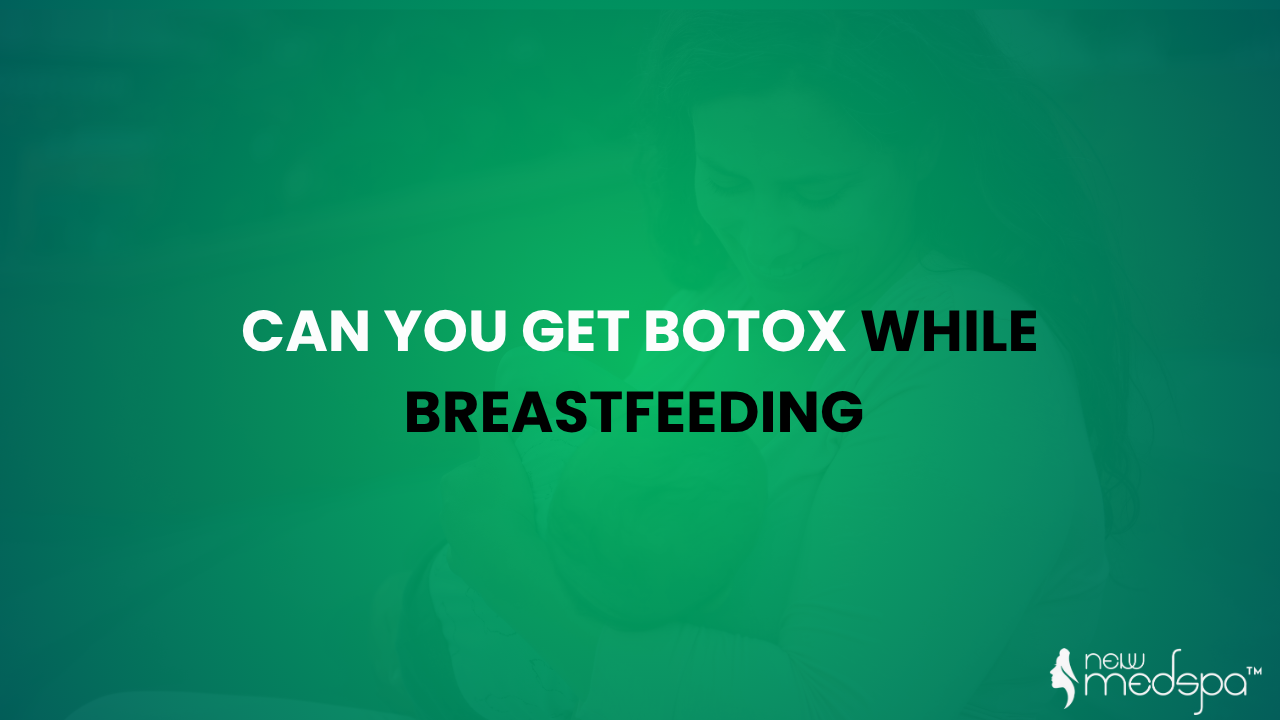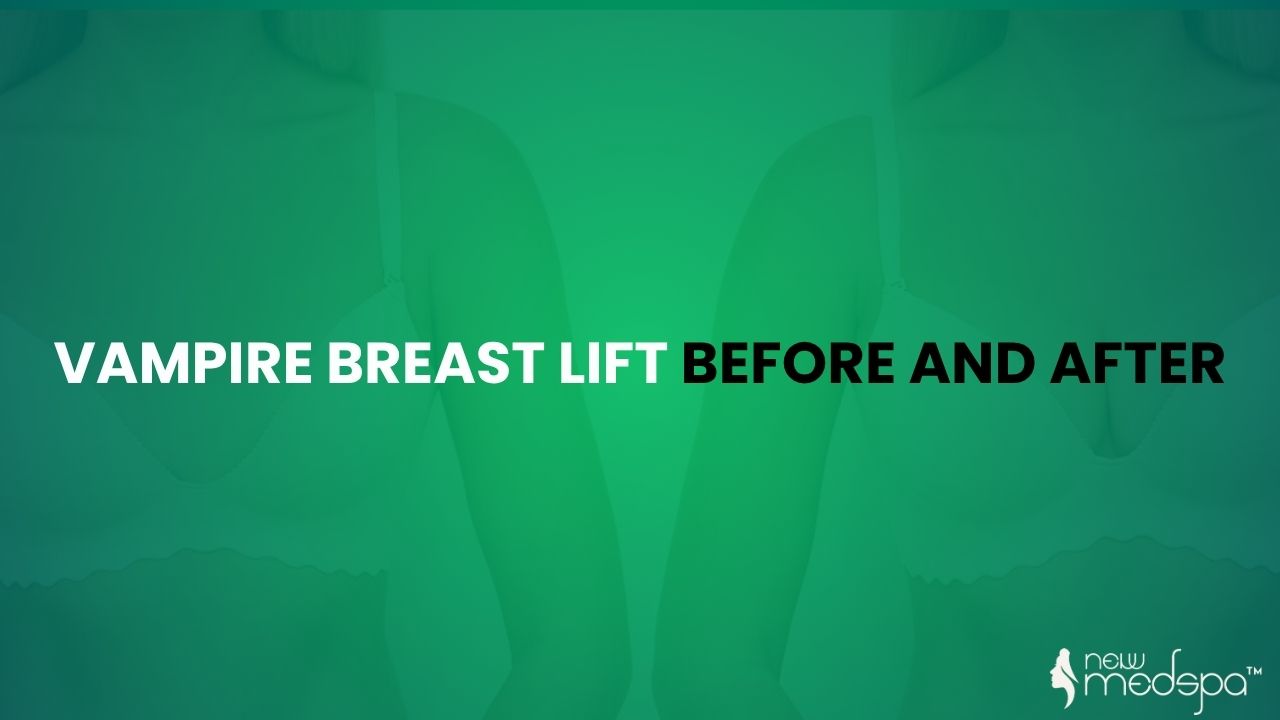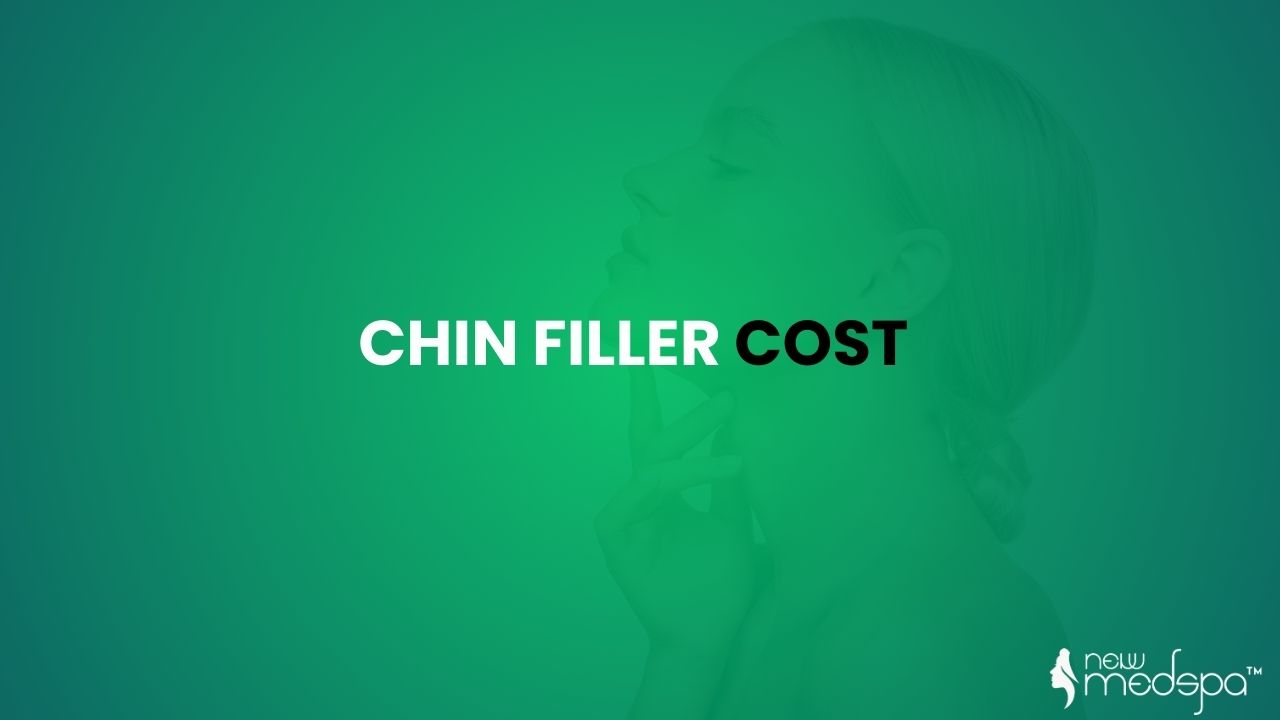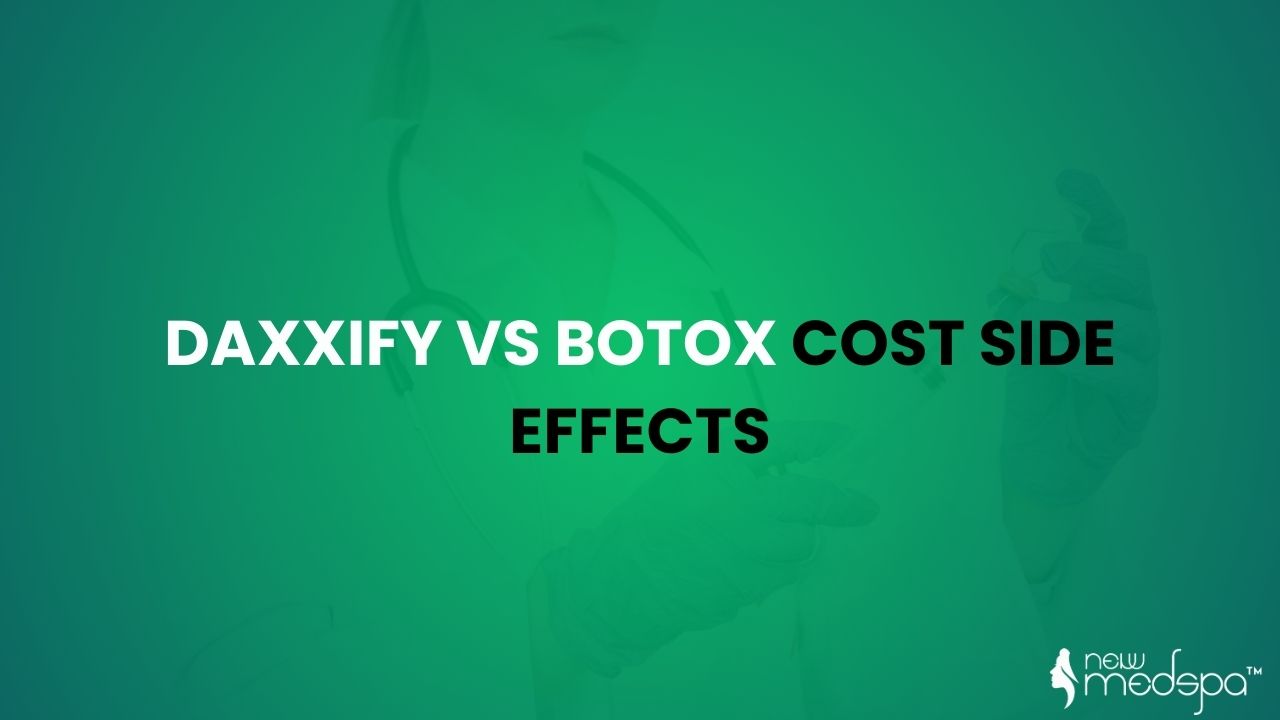Retinol Vs retinoid, may sound very similar because both are vitamin A derivatives but do you know that they both are somewhat different? As per dermatologists and studies, they come with a highly unique power to fight against aging.
While Retinol is a mild OTC choice, Retinoids on the other hand are a prescription that comes with high strength that works faster and more dramatically. However, with great benefits comes great confusions. If you’re curious to know which one your skin needs the best, let’s dive into this insightful Retinol Vs Retinoid complete comparison guide.
What Are Retinoids?
Retinoids are a very powerful medication that are Vitamin A derivatives. Unlike retinol it is used to treat a wide variety of skin issues that include aging, acne and severe skin conditions like psoriasis. It was first originated and approved by the FDA in 1971 and is still a popular agent for its skin clearing benefits.
What Are Retinols?
Retinols come from the Retinoid family that are a type of vitamin A derivative. However, it is a milder member of the retinoid family. You can commonly find it in OTC skin care products. People love it for its gentle and highly effective ability to smoothen up fine lines and brighten your skin and remove wrinkles. Read about other effective and best treatment for wrinkles. here.
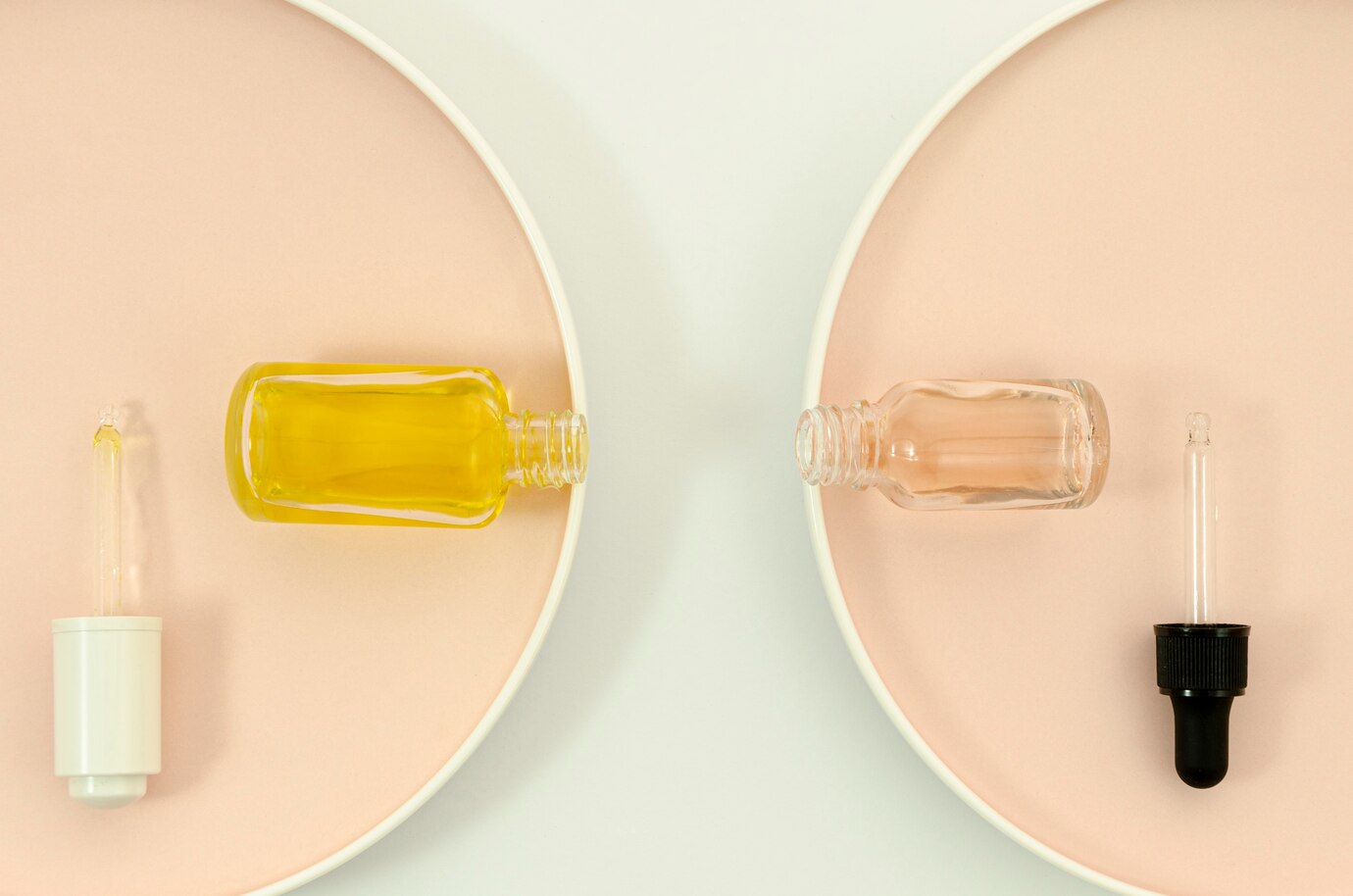
Retinol Vs Retinoid: Comparison
The Retinol Vs Retinoid major comparison is that, retinoids are highly powerful prescription products while retinols are sold over the counter skin care formulas. If you are wondering how these both similar terms differ, then here is a complete comparison based on their differences:
| FEATURE | RETINOL | RETINOID |
| Selling type | Is a skincare product available over the counter (OTC) | Is a prescription medication that is only allowed after a doctor’s prescription |
| Strength | Low | High |
| Availability | Available in face washes, creams and serums | Available in forms of topical ointments and gels |
| Conditions for use | Uneven skin tone, hyper pigmentation, textured skin, aging skin | Mild-severe Acne, acne scars, psoriasis, wrinkles, severe hyperpigmentation |
| Examples of products | The ordinary Retinol,Olay,Skin medica Retinol complex | Differin gel Adapalene, Tretinoin, Retin A 0.1% |
Retinol Vs Retinoids: Benefits
Retinol: Retinol comes from the form of retinoids. You can find it as OTC skin care products and its concentration ranges between 0.5 to 1%. One of the major benefits of Retinol is that it speeds up cell turnover. Its benefits include a smoother skin and also brightens it up.
Retinol can also stimulate collagen and elastin production deep down within your skin. It reduces the appearance of fine lines and wrinkles. Candidates who are beginners and require a gentle formula for their skin, especially those with a highly sensitive skin can benefit from Retinol for a gradual improvement.
Retinoid: Retinoids are highly powerful for the skin system as they accelerate the skin’s cellular system. Based on Retinol Vs Retinoid benefit, Retinoid removes dead skin cells and also swipes away dirt deep down into the skin. They are highly effective against severe acne or and improve collagen and elastin production more profoundly than Retinol. Since these are prescription medications, they are stronger and have fast results but are more irritable than retinol.
Retinol Vs Retinoid: Power
Retinol: It is required to be converted by the skin through two steps to work. In the first phase it has to be converted into Retinaldehyde and in the second phase into Retinoic acid before it activates. This conversion is slower than that of the prescription Retinoids.
However, it is still the best for sensitive skin types and candidates who are new users to vitamin A treatments. Retinols provide effective results within lower side effects than retinoids and also initial a cascade of stem cells. You can also read about the 15 Stem Cell Therapy Benefits That Will Shock You right here.
Retinoid; Retinoids do not require to be converted into any other form for its activation. Its active agent is directly delivered into the skin and works faster and more powerful than Retinol. It quickly responds to textured skin, acne and pigmentation.
However, its extreme potency brings about a great incidence of side effects hence requires careful consideration.
Retinol Vs Retinoid: Uses
Retinol Uses:
- Reduces low levels of fine lines and wrinkles
- Improves your overall skin texture and tone
- Fades dark spots and pigmentation to a milder degree
- Suitable for candidates with sensitive skin types
Retinoid Uses:
- Treats moderate to severely affected face with acne
- Reduces signs of aging quite faster
- Fades stubborn pigmentation
- Improves skin elasticity and firmness
- Works on psoriasis
- Requires prescription for stronger formulas
Retinol Vs Retinoid : Side Effects
When considering the side effects of Retinol Vs Retinoid, both can lead to similar risks. However, they differ in the intensity. Here’s what people expect in the side effects:
- Irritation
- Skin dryness
- Skin peeling in the areas the agents are used
- Facial redness
In terms of higher doses, you may experience dermatitis, hyperpigmentation, itching and sensitivity to sun exposure.
Note: If you don’t use retinoids and retinols based on the dosage advised as per your physician, they can also develop skin swelling, heavy blisters and even scaly patches.
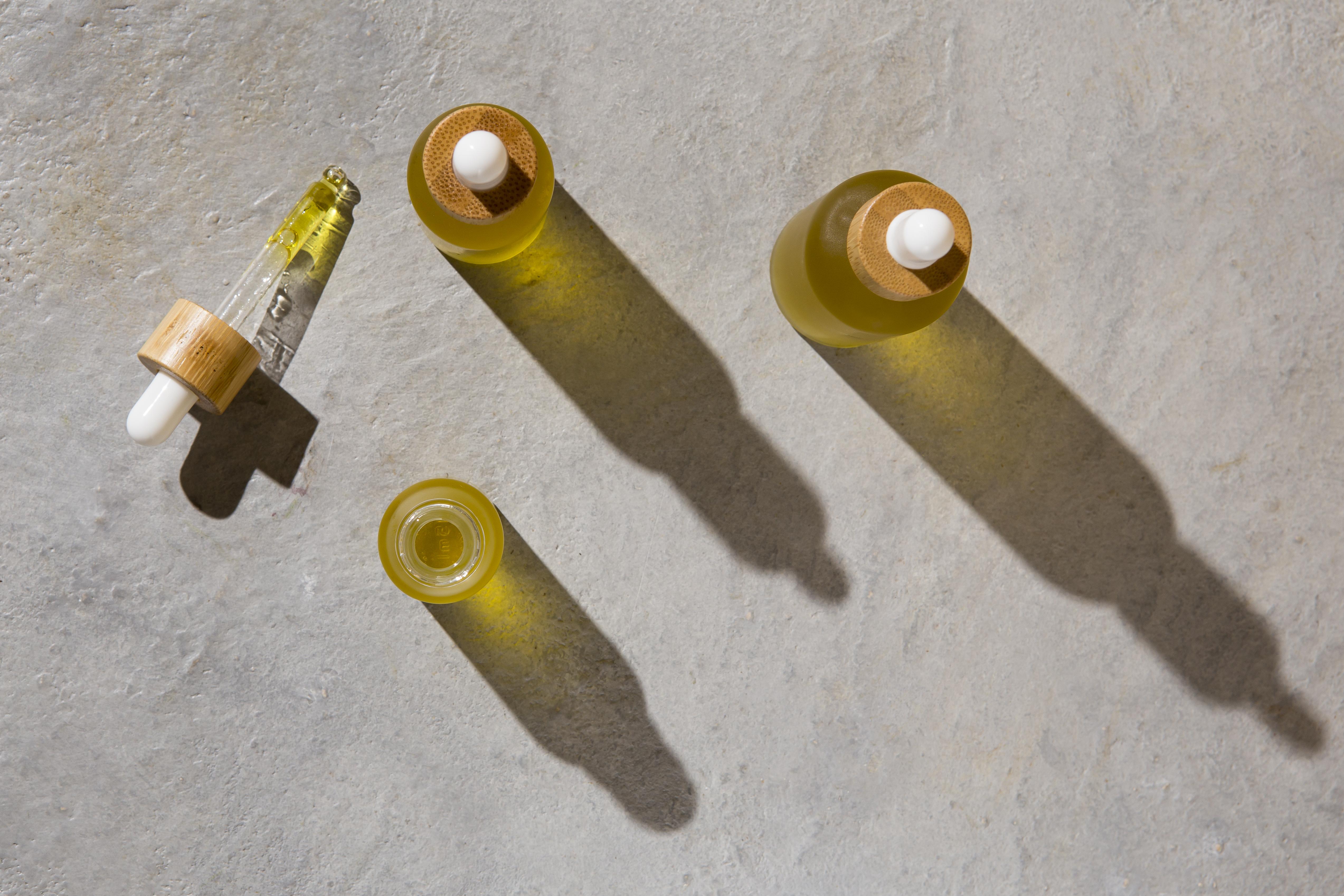
How Can I Use Retinol And Retinoid?
Retinol: They are available in concentrations between 0.001 to 1% OTC in serums and some creams. You just wash your face and apply it on your face. You can slowly and gradually take it up towards stronger formulas as per your requirements.
Retinol products are not regulated like prescription medicines therefore, you have to discuss the change of dosage with your skin specialist to ensure you’re using it effectively and safely.
Retinoid: Initially you have to wash your face with a gentle cleanser and then dry your face. Now apply the cream in a very thin layer. They are always available in the form of gels, creams and liquids.
As Retinoids are stronger you need to seek the right prescription dosage and amount from your physician. Take proper guidance from the specialist for best results within the Safety range .
When To Use Retinol And Retinoid?
Retinoids and Retinol creams are best applied during the night especially after you cleanse your face completely. This is because both the agents can make your skin sensitive to sunlight. Therefore doctor’s recommend their use during the absence of sunlight.
How To Choose Between Retinol And Retinoid?
If you are deciding to choose between Retinol Vs Retinoid, the best approach is to seek consultation from your healthcare provider or dermatologist. They will consider the factors like acne, age and the degree of pigmentation.
If you have mild to moderate acne and a sensitive skin, the right option would be Retinol. On the other hand, if you have severe acne, a highly pigmented skin condition that is not responsive to Retinol, then Retinoids can serve as a good option.
Note: While both treatments are effective, avoid using them without seeking guidance and recommendation from your dermatologist especially if your skin is highly sensitive and gets easily allergic to new skin care products.
Get The Right Consultation
While choosing between Retinol Vs Retinoid, seeking the right advice makes a big difference. At New U Med Spa we have specialists offering the first class consultation to help you figure out the perfect skin care solution based on your needs. Whether you are looking for an easily available Retinol product or a stronger prescription like Retinoid find us at 7300 Sand Lake Commons Blvd Ste 227 A, Orlando, FL 32819 or call us at (407) 853-2676 to get a personalized skin care plan and book your consultation today!


